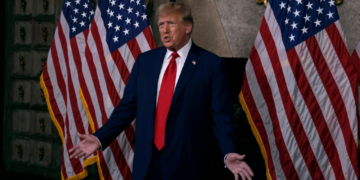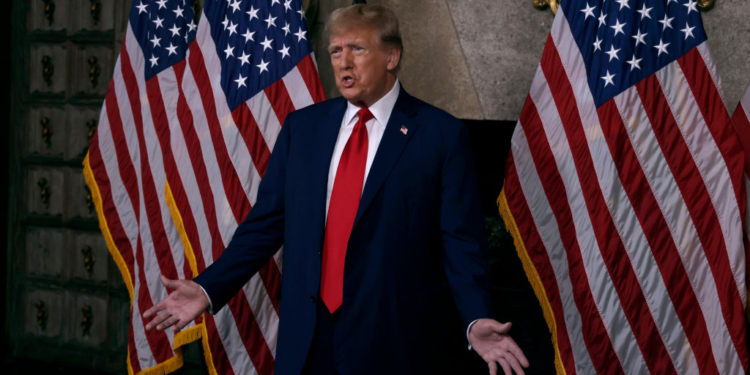President-elect Donald Trump and House Republicans met over the weekend to discuss the possibility of tying the destruction of the California wildfires to the national debt — predicted be one of the most expensive natural disasters in U.S. history.
According to a report from Politico, Trump and roughly two dozen House Republicans met at his home in Mar-a-Lago, Florida, Sunday, to mull over the option of increasing the debt ceiling to cover the costs, which preliminary cost estimates show are currently over $50 billion.
The report notes several of those in attendance were caucus leaders and appropriators, who will have influence on government funding negotiations and the budget. Trump is reportedly pushing to have lawmakers address the disaster quickly. However, the report further notes because of the politically charged nature of adding to the debt ceiling, some lawmakers, including Democrats, could be reluctant to add to it.
While a total of $100 billion was approved last year for disaster aid by Congress, the report points out some are concerned the Los Angeles wildfires could quickly deplete funds and leave no other option but to increase the national debt, which could put strain on the GOP’s reconciliation plan for the border, energy, and tax.
According to The Hill, House Speaker Mike Johnson (R-La.), who was not in attendance at the meeting with Trump over the weekend, told reporters Thursday he is worried about the Federal Emergency Management Agency’s (FEMA) leadership, despite the agency currently having enough in funding to cover the California wildfires and other disasters around the U.S.
FEMA has been heavily criticized by GOP leadership over recent years, including in 2024, when the agency announced it had run out of funds in the midst of hurricane season. Trump is yet to appoint anyone to into FEMA’s top role.
The Hill further reported House Majority leader Steve Scalise (R-La.) suggested the GOP was expecting to revisit the issue of government funding and emergency aid spending.
“Even the disasters and the hurricane response there — we knew there may be a second bite of that apple,” Scalise told reporters Thursday. “At the end of the day, we knew that that was going to have to be revisited in the negotiations over government funding.”


























 Continue with Google
Continue with Google